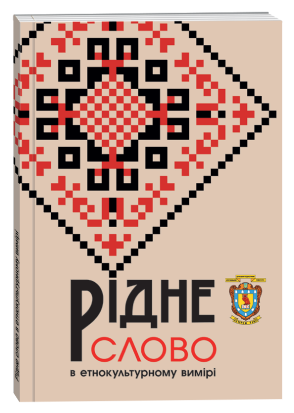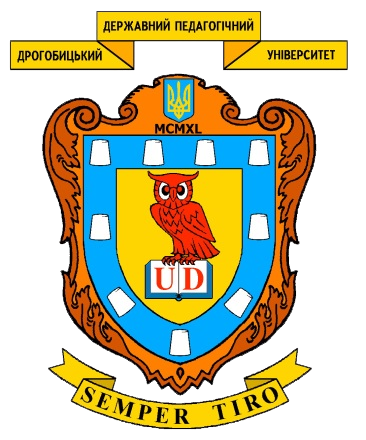PhD student, Institute of Ukrainian of NAS of Ukraine (Ukraine, Kyiv) THE REACTIVATED WORDS OF «RUSSIAN-UKRAINIAN DICTIONARY» EDITED BY A.Y. CRYMSKIY AND S.O. YEFREMOV
Keywords:
reactivated vocabulary, vocabulary lexicographical reactivation, reactivation uzusna vocabulary deactivation vocabulary “words forged”, “Russian- Ukrainian Dictionary” edited by A. Crimean and S. Yefremov.Abstract
The main trend in the development of Ukrainian literary language of the late XX – early XXI centuries is the determining infl uence of socio-political factors on linguistic system that manifests itself in the emergence of new words and changes their meanings. The process of return to the linguistic practices of the words used earlier, but evicted from certain social, ideological reasons, that is, the process of the reactivation of the words requires careful study. Due to the reactivation of the words is updated (or restore) the vocabulary of the literary language, which in turn makes it possible to trace the dynamics of lexical rules. The «Russian-Ukrainian Dictionary» (RUD) edited by A.Y. Crymskiy and S.O. Yefremov is the authoritative source for the development of Ukrainian lexicography, as well as the basis for a system of purifi cation and renewal of the Ukrainian language. Therefore, in our view, relevant is the comparative analysis of a fragment of the Ukrainian registry of RUD with a fragment of a consolidated register of the Ukrainian words concluded at the Institute of Ukrainian language of National Academy of Sciences of Ukraine on the basis of 20 general language dictionaries and encyclopedias XIX – XXI century. This comparative study allowed to identify the following groups of words: words, reactivated in language usage and lexicographically reactivated; words, reactivated only in language usage and deactivated words. In passing, we fi nd probably «forged words» and the word was fi rst recorded in the RUD as the secondary source and words with the new meanings. We found a signifi cant number of reactivated words that is gradually returning to the using on the example of analyzed fragment of Ukrainian registry of RUD. But the conclusion about reactivation of the words in language usage can do just with a complex of sources of search, that the presence in the complex of the texts, and the searching system on the Internet. At the same time, we recognize that these fi ndings clearly impossible because idiolect of individual authors, publications in contemporary periodicals can not always serve as a model of language usage and often contrary to language rules. Nevertheless, we believe that returning to the Language Usage reactivated words supports the revival of spiritual and cultural values and eventually, perhaps, this words will return to dictionaries.
References
Андрейченко Е.В. Возвращенная лексика русского языка ХХ века: лингвистический статус, социокультурная детерм инированность, функционирование: автореф. дис. на соискание уч. степени канд. филол. наук: спец. 10.02.02 «Языки народов Российской Федерации» / Е.В. Андрейченко. – Алматы, 2007. – 27 с.
Баранник Д.Х. Народнорозмовний складник лексичної та фразеологічної систем на ціональної мови (на захист розмовного стилю) [Текст] / Д.Х. Баранник // Мовознавство. – 2008. – № 4–5. – С. 31.
Гайдученко Г.М. Актуалізація лексичних одиниць української мови кінця ХХ – початку ХХІ століття [Текст] / Г .М. Гайдученко // Науковий вісник Херсонського державного університету. Серія «Лінгвістика». – 2015. – Випуск 22. – С. 58 – 61.
Дудик М.П. Активізація – актуалізація – р еактивація (лексики) [Текст] / М.П. Дудик // Культура слова. – 2003. – №62. – С. 30 – 33.
Караванський С.Й. Секрети української мови: Науково-популярна розвідка з додатком словничків репресованої та занедбаної української лексики [Текст] / С.Й. Караванський. – К.: УКСП «Кобза», 1994. – 152 с.
Кислюк Л.П. Нове життя репресованих словників [Текст] / Л.П. Кислюк // Світогляд. – 2008. – №2. – С. 80.
Ковтунець О.С. Явище актуалізації лексики в сучасній українській мові (стан і перспективи дослідження) [Текст] / О.С. Ковтунець // Лексикографічний бюлетень. – 2010. – Випуск 19. – С. 114 – 122.
Котелова Н.З. Первый опыт лексикографического описания русских неологизмов [Текст] / Н.З Котелова // Новые слова и словари новых слов. – Ленинград: Наука, 1978. – С. 5 – 26.
Мазурик Д.В. Інноваційні процеси в лексиці сучасної української літературної мови (90-і роки ХХ ст.): автореф. дис. на здобуття наук. ступеня канд. філол. наук: спец. 10.02.01 «Українська мова» / Д.В. Мазурик. – Львів, 2002. – 21 с.
Мацько Л.І. Українська мова в кінці ХХ ст. [Текст] / Л.І. Мацько // Дивослово. – 2000. – №4. – С. 15 – 20.
Муромцева О.Г. Тенденції розвитку словникового складу української літературної мови (кінець 80-х – 90-і рр.) [Текст] / О.Г. Муромцева // ІV Міжнародний конгрес україністів. Мовознавство. Доповіді та повідомлення. – К.: Університетське вид-во «Пульсари», 2002. – С. 22 – 25.
Німчук В.В. Давньоруська спадщина в лексиці української мови [Текст] / відп. ред. С.П. Бевзенко. – К.: Наук. думка, 1992. – 416 с. 13. Стишов О.А. Українська лексика кінця ХХ століття: (На матеріалі мови засобів масової інформації) [Текст] / О.А. Стишов. – 2-ге вид., переробл. – К.: Пугач, 2005. – 388 с.
Струганець Л.В. Процеси актуалізації та пасивізації лексико-семантичних засобів в українській літературній мові кінця ХХ століття [Текст] / Л.В. Струганець // Слово. Стиль. Норма: Зб. наук. пр. / Відп. ред. Н.М. Сологуб. – К., 2002. – С. 53 – 57.
Тодор О.Г. Явища семантичної трансформації та стилістичної транспозиції в українській мові 90-х рр. ХХ століття [Текст] / О.Г. Тодор // Наукові записки. – 2003. – Т. 22. – Ч. 1. – С. 13 – 16.
Шевельов Ю.В. У довгій черзі: проблема реабілітації [Текст] / Ю.В. Шевельов // Київ. – 1991. – №12. – С. 72 – 76.







